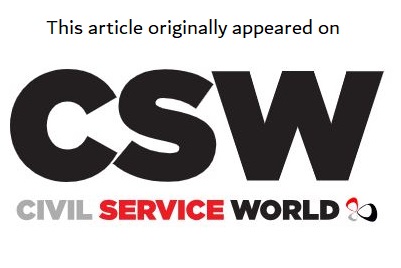Government’s chief scientist Angela McLean recently told a parliamentary committee that departments would benefit from a programme designed to bring into government tech experts already 10 years into their career
Civil service union Prospect has given its support aspiration to create a new Whitehall graduate leadership programme aimed at recruiting experienced professionals in STEM fields.
Appearing before the House of Lords Science and Technology Committee recently, government chief scientist Professor Dame Angela McLean’s suggesting that such a programme – modelled on the hugely popular, but more-recent-graduate-focused Fast Stream – could help deliver government the pipeline of expertise it needs.
The Cabinet Office has a target for 50% of fast streamers to come from science, technology, engineering and maths backgrounds. The chief scientist said the mid-career programme for STEM specialists that she envisaged would focus on recruiting professionals with 10-15 years of experience.
Prospect, which represents government professionals service working in fields including software engineering and data science, said it backed the vision and was keen to work with ministers to boost STEM expertise in government.
Related content
- Pay rise of 6.75% offered to government’s future digital leaders
- Digital specialists joining government lack ‘the right jobs to go to’, report finds
- Government leaders of the future will need digital and data expertise, says head of Fast Stream
Deputy general secretary Garry Graham said helping members develop their careers across different sectors was also important.
“Prospect welcomes proposals to help build STEM capability and capacity in the civil service and will be engaging with the Government Office for Science and the Cabinet Office,” he said. “STEM and data skills are vital to dealing with some of the greatest challenges we face as a nation – both nationally and internationally. STEM and data skills need to be at the heart of policy development, delivery and evaluation. The civil service needs to ensure that it has the skills it needs for now and the future, and we want to support members as they build their careers and skills across both the public and the private sectors.”
The FDA union, which represents civil service leaders, is sceptical about McLean’s proposals, however.
Assistant general secretary Lauren Crowley said the chief scientific adviser’s “mid-career” fast stream would not fix failed civil-service reward systems.
“McLean wants help to recruit and retain staff that are highly sought after; however, civil service roles are uncompetitive and unattractive,” she said. “The civil service needs a proper pay and workforce strategy to offer rewards that attract staff with the required skills, while incentivising them to stay in government long term.”
McLean told last week’s House of Lords session that restrictions on the reward packages that departments could offer meant the government was “always going to struggle” to compete with private sector pay levels for scientists.
But she said that civil service pay below SCS grades could be competitive with salaries paid to “more junior people” in academia.
“I’m thinking someone who’s done a PhD and several years of post-doc-ing,” she said. “So I think that’s where we should aim.”
She also flagged a particular interest in government’s Science and Engineering Fast Stream, which is part of the overall Fast Stream programme.
McLean said there were 113 SEFS participants as of 2023, compared with 18 in 2015, and described the scheme as “growing well”. SEFS is one of 15 specialist schemes across the Fast Stream. In total, around 1,000 new recruits join the Fast Stream every year.






Your article helped me a lot, is there any more related content? Thanks!